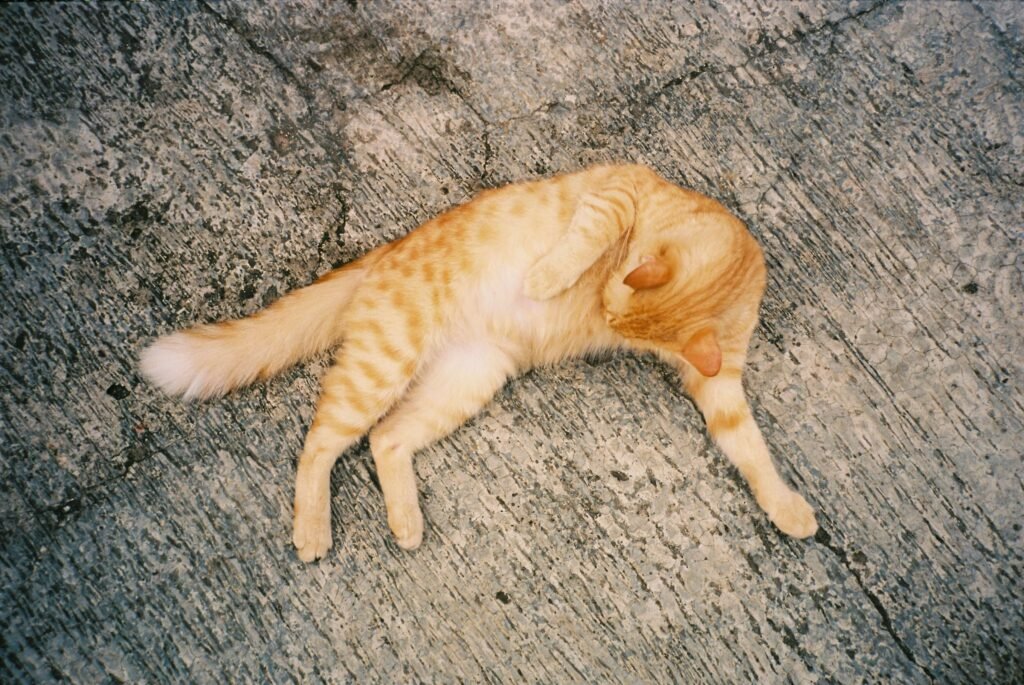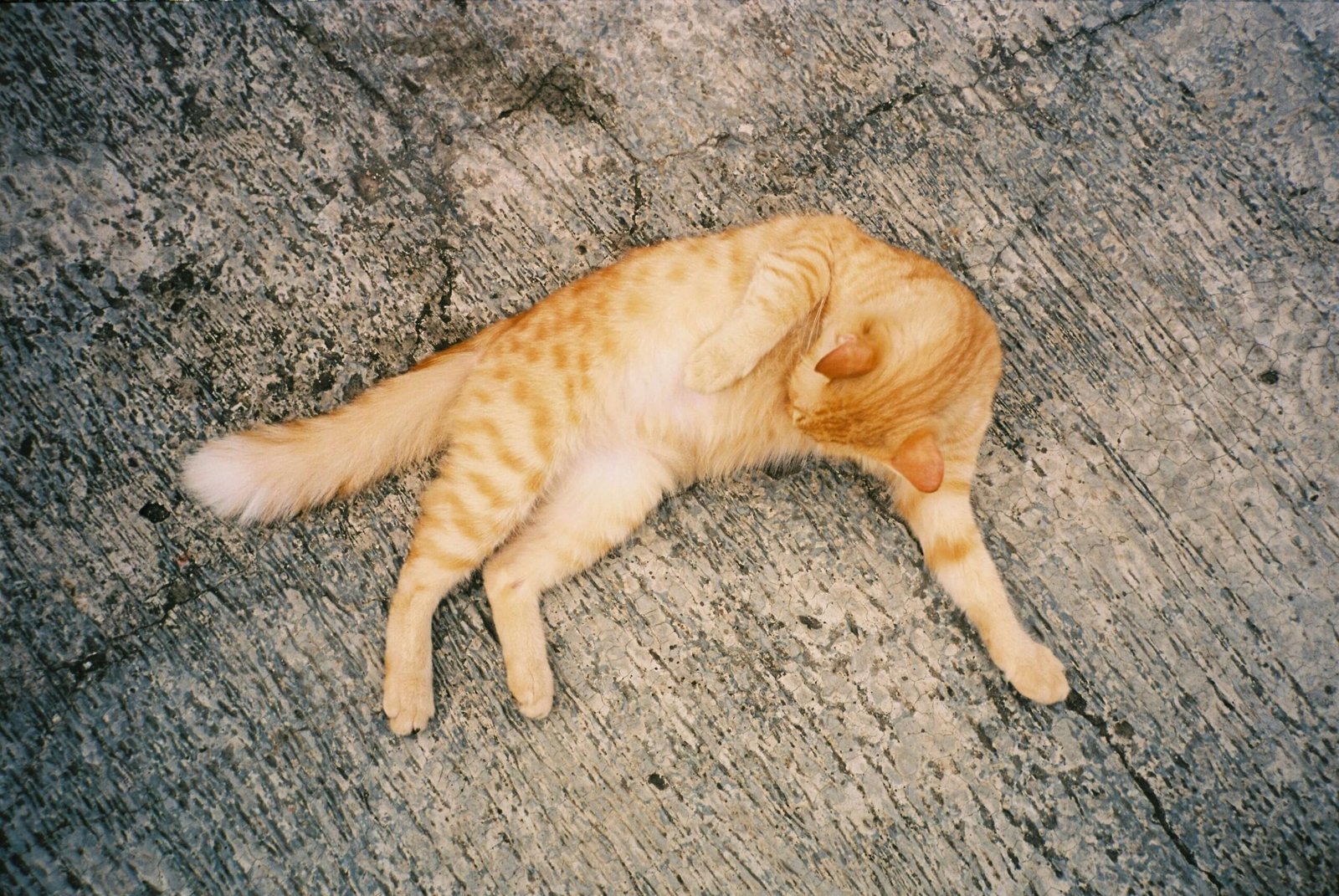Why Does My Cat Put His Butt in My Face?
Cats are fascinating creatures, full of quirks and behaviors that often leave us scratching our heads—or laughing out loud. One such behavior is when your feline friend decides to park their rear end squarely in your face. While it may seem odd or even a bit unpleasant at first glance, there’s actually a lot of meaning behind this peculiar gesture. Understanding why cats do this can deepen your bond with them and help you appreciate their unique ways of communicating. So, let’s dive into the world of cat body language and uncover what’s really going on when your cat presents their backside to you.
The Science Behind the Behavior
Before we delve deeper into why cats exhibit this behavior, here’s a quick overview of some key reasons backed by science:
Cats use scent as a primary means of communication.
Their anal glands release pheromones that convey important messages to other animals—and sometimes humans.It’s a sign of trust.
When your cat turns around and shows you their most vulnerable area, they’re signaling that they feel safe with you.Marking territory is instinctual for cats.
By positioning themselves close to you, they might be trying to mark you as part of their “group.”This behavior has roots in kittenhood.
Mother cats lick their kittens’ bottoms to stimulate digestion, so presenting the rear could be linked to early nurturing experiences.Social grooming plays a role too.
In multi-cat households, mutual grooming often involves sniffing or licking each other’s backsides, which fosters social bonds.
Understanding these points helps frame the behavior not as random but rather as deeply ingrained in feline biology and psychology. Next time your cat does this, remember—it’s all about connection!
Common Misconceptions About This Behavior
While many people find this behavior amusing or confusing, several myths surround it. Here’s a breakdown of common misconceptions:
Cats only do this because they’re being rude.
In reality, this isn’t an act of disrespect; it’s quite the opposite. Your cat likely sees you as family.They’re just looking for attention.
Although seeking attention can play a role, it’s usually secondary to the deeper meanings mentioned earlier.The behavior indicates poor training.
This couldn’t be further from the truth. Even well-trained cats engage in this behavior due to its natural origins.Only certain breeds display this trait.
All cats, regardless of breed, may exhibit this behavior depending on their personality and environment.It means something is wrong medically.
Unless accompanied by unusual symptoms like discomfort or excessive odor, this behavior is typically harmless.
These clarifications highlight how normal and natural this action truly is. Rather than dismissing it as strange, embrace it as one of the many endearing traits that make cats such wonderful companions.
Check this guide 👉Why Do Cats Chase Their Tails? Best 7 Behavior Tips!
Check this guide 👉Why Does My Cat Sleep at My Feet? Best 7 Behavior Tips!
Check this guide 👉Why Does My Cat Twitch in Their Sleep? Best 7 Behavior Tips!

Reasons Cats Show Their Butts | What You Can Do |
|---|---|
To communicate through scent | Allow them space to express themselves |
As a gesture of trust | Acknowledge their affection |
For territorial marking | Avoid punishing or scolding them |
Linked to maternal instincts | Provide comfort and reassurance |
Part of social bonding | Engage in gentle interaction |
How to Respond to This Behavior
If your cat frequently puts their butt in your face, it’s helpful to know how best to respond. Consider these tips:
Stay calm and avoid overreacting.
Remember, this is a form of communication, not rudeness.Gently redirect their focus.
Offer toys or treats to shift their energy elsewhere if the behavior bothers you.Reinforce positive interactions.
Pet them gently or speak softly to encourage more appropriate forms of engagement.Observe patterns in their behavior.
Take note of when and where this happens to better understand triggers.Consult a vet if needed.
If the behavior seems excessive or paired with other concerning signs, seek professional advice.
Responding thoughtfully will strengthen your relationship while respecting your cat’s instincts.
Other Similar Behaviors to Watch For
Cats communicate in various ways beyond showing their rear ends. Keep an eye out for these related behaviors:
Rubbing against your legs or furniture.
This is another way cats mark their territory using scent glands located on their cheeks and flanks.Rolling onto their back.
When cats expose their belly, they’re showing vulnerability and trust—though beware, petting it might lead to playful bites!Head-butting or bunting.
This friendly behavior deposits scent and strengthens social bonds.Kneading soft surfaces.
Often associated with contentment, kneading mimics kitten nursing behavior.Slow blinking at you.
Known as a “cat kiss,” this slow blink signifies deep affection and relaxation.
Recognizing these behaviors enriches your understanding of your cat’s emotional state and enhances your shared connection.
The Role of Scent in Feline Communication
Cats rely heavily on scent to navigate their world and communicate with others. Here’s how scent plays a role in their behavior:
Scent glands are located in various parts of a cat’s body, including their face, paws, and anal area.
These glands release pheromones that convey messages about identity, mood, and even health.Cats use scent marking to establish familiarity and security.
By rubbing or presenting certain areas, they create a comforting “scent map” of their environment.Scent communication helps cats recognize friends from foes.
This is why your cat might sniff other animals or humans before deciding whether to engage.Mother cats use scent to bond with their kittens.
Newborns rely on their mother’s scent for guidance, warmth, and nourishment.Scent-based behaviors are deeply instinctual and cannot be “trained out.”
Attempting to suppress them may cause stress or confusion for your cat.
Understanding the importance of scent in feline communication sheds light on why behaviors like putting their butt in your face are so significant—it’s their way of saying, “You’re part of my world.”
How Cats Express Trust Through Body Language
Trust is a cornerstone of any strong human-cat relationship, and cats express it in subtle yet meaningful ways. Here’s what to look for:
Cats often expose their belly when they feel safe.
This vulnerable position indicates they trust you won’t harm them.Slow blinking is a universal sign of feline affection.
When your cat slowly closes and opens their eyes, they’re essentially giving you a “cat kiss.”Allowing you to touch sensitive areas, like their paws or tail, shows deep trust.
These parts of their body are typically reserved for those they feel closest to.Following you around the house is another sign of trust.
Your cat feels secure enough to stay close and monitor your movements.Sleeping near or on you reinforces their bond.
Cats only sleep in places where they feel completely at ease.
Recognizing these gestures can help you better interpret your cat’s emotions and strengthen your connection. Trust is earned, and your cat’s willingness to share their vulnerabilities speaks volumes.
Why Cats Seek Attention in Unusual Ways
Sometimes, cats resort to unconventional methods to grab our attention. While putting their butt in your face isn’t always about seeking interaction, it can occasionally serve this purpose. Here’s why cats might act out for attention:
Cats thrive on routine and may act up if their schedule is disrupted.
Changes in feeding times or play sessions can lead to attention-seeking behaviors.Boredom can drive cats to find creative ways to engage with you.
Without enough mental or physical stimulation, they’ll invent games or antics to entertain themselves.They crave social interaction, especially if left alone for long periods.
Cats are more social than many people realize and enjoy companionship.Attention-seeking behaviors can mask underlying anxiety or stress.
Major life changes, like moving homes or introducing new pets, may trigger unusual actions.Positive reinforcement can encourage better ways to seek attention.
Rewarding calm behaviors teaches your cat what gets your focus without resorting to odd stunts.
While quirky behaviors like presenting their rear end might seem strange, they’re often just another way your cat is trying to connect with you. Patience and understanding go a long way in nurturing a harmonious relationship.
Frequently Asked Questions About Cats Showing Their Butts
Is it normal for my cat to put their butt in my face?
Yes, it’s completely normal! This behavior stems from feline instincts and serves multiple purposes, including communication and bonding.
Should I discourage this behavior?
Not necessarily. Instead, try to understand its significance. However, if it makes you uncomfortable, you can gently redirect your cat’s attention.
Does this behavior mean my cat loves me?
Absolutely! By exposing their vulnerable side, your cat is expressing trust and affection toward you.
Could medical issues cause this behavior?
Rarely. If your cat suddenly starts doing this excessively or shows other signs of distress, consult a veterinarian to rule out health concerns.
Do all cats do this?
Most cats exhibit this behavior at some point, though frequency varies based on individual temperament and environmental factors.
Embracing Your Cat’s Unique Ways
Understanding why your cat puts their butt in your face transforms what might initially seem like an oddity into a meaningful expression of trust and affection. From scent-based communication to instinctual behaviors rooted in their evolutionary history, every quirk tells a story about your feline companion. By embracing these idiosyncrasies, you’re not only fostering a stronger bond but also celebrating the rich tapestry of behaviors that make cats such delightful pets. So next time your furry friend greets you with their rear end, take it as a compliment—they clearly adore you!
Do Cats Have Taste Buds? Best 7 Expert Tips! – Discover how cats experience flavors and why their taste is so unique.
Do Dogs Have Taste Buds? Best 7 Expert Tips! – Discover how dogs experience taste, their preferences, and what it means for their diet and health.
Can Cats Taste Sweet? Best 7 Expert Tips! – Discover why cats can’t taste sweetness, how it affects their diet, and tips to keep them healthy and happy.
Can Dogs Taste Sweet? Best 7 Expert Tips! – Discover how dogs perceive sweetness, which foods are safe, and tips to manage their sweet cravings responsibly.





